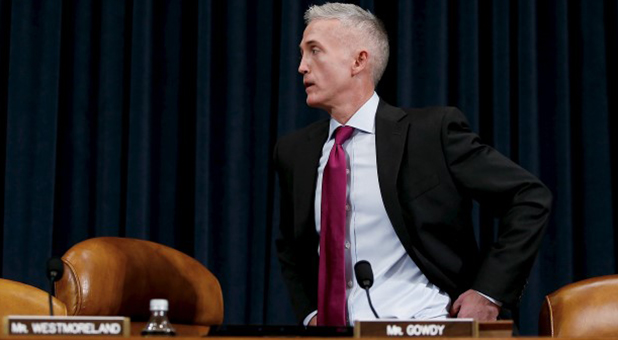Did Trey Gowdy Endorse a Candidate or Not?
When it quacks like a duck, and waddles like a duck, it’s probably a duck—unless it’s a goose—but in politics, it’s even more complicated.
U.S. Rep. Trey Gowdy (R-S.C.), a very popular figure among a wide swath of Republican voters, is set to appear on the presidential campaign trail with his “good friend” U.S. Sen. Marco Rubio (R-Fla.). The two are set to begin a weather-shortened two-day swing through Iowa Tuesday.
But, he hasn’t “officially” endorsed his fellow member of Congress in the GOP presidential race.
“Marco is a rock solid conservative and a strong leader we can trust,” Gowdy said in a statement issued by the Rubio campaign over the weekend. “I look forward to campaigning in Iowa with him, and introducing my good friend to voters across the state.”
It sounds like an endorsement, but in the world of politics, it isn’t really an endorsement until you actually use the words “endorse” and “president” in the same sentence. Gowdy’s office has been quiet about the matter.
Some have suggested the appearances in Iowa may do more harm to Gowdy’s reputation with Tea Party and grassroots conservatives than it will help Rubio’s chances of winning the first-in-the-nation Iowa Republican Caucus—or the South Carolina Primary that follows a few days later. But, Gowdy is also widely popular among establishment Republicans, a group Rubio must make inroads with if he hopes to compete with the anti-establishment front-runners, Sen. Ted Cruz and businessman Donald Trump.
The “establishment lane” consists of a number of candidates polling in the single digits, including former Florida Gov. Jeb Bush and New Jersey Gov. Chris Christie, both of whom are polling much better in New Hampshire than in Iowa. An establishment-led top-three showing in Iowa could help Rubio much more in the other early voting states.















































